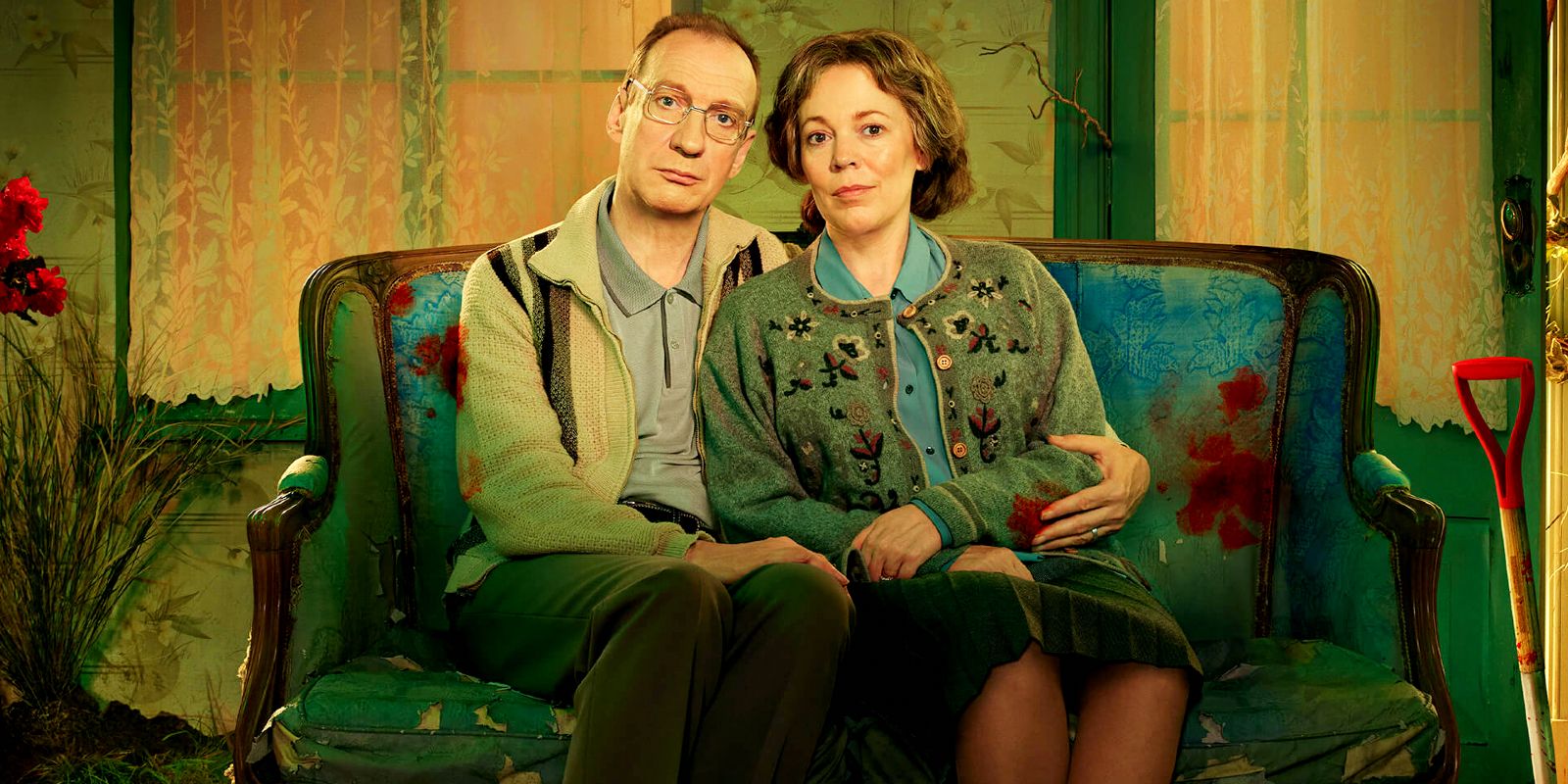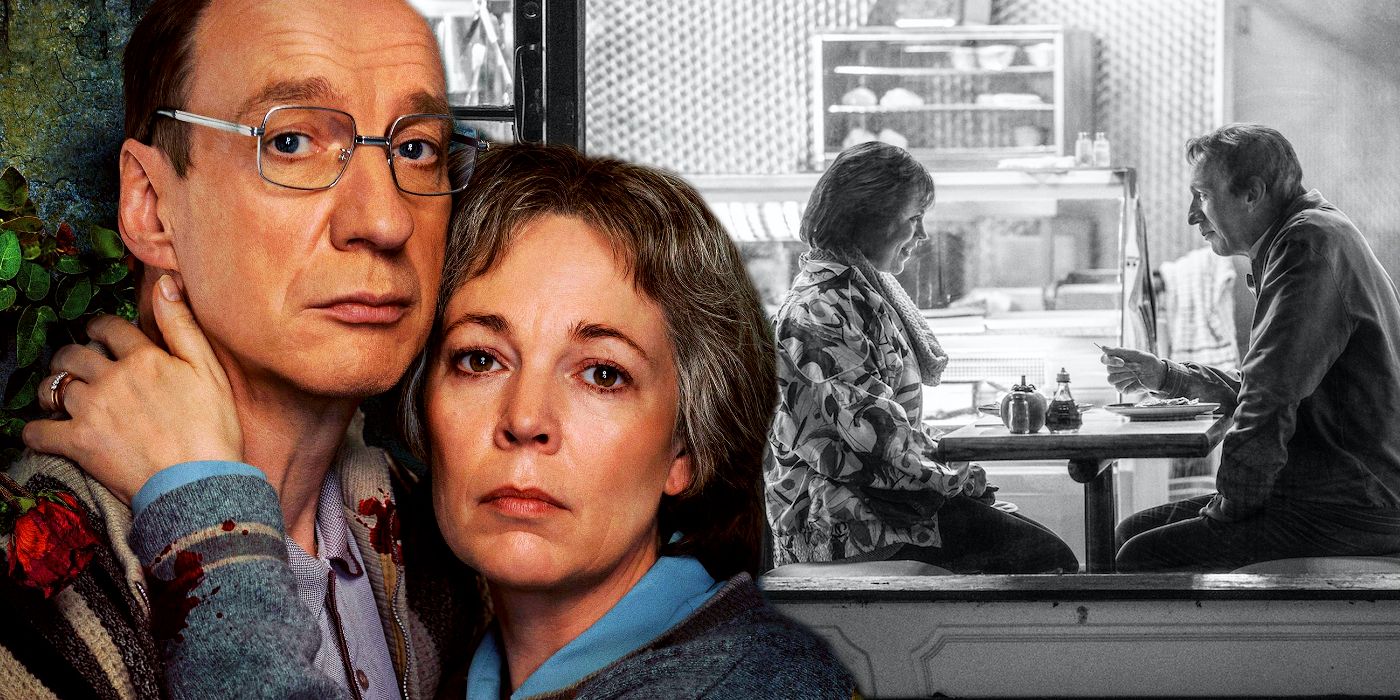Warning: Spoilers ahead for Landscapers episode 3.
Landscapers' real-life origins create a common true crime problem as the series offers viewers a sympathetic view of Susan (Olivia Colman) and Christopher Edwards (David Thewlis). The HBO miniseries written by Ed Sinclair follows the real case of the murderous couple faithfully, alongside bits of creative license that delve into the characters' psyches while they recount (or invent) the events in 1998. In 2014, Susan and Chris were convicted for the murder of Susan's parents, Patricia and William Wycherley – Landscapers explains these events from the killers' perspectives, often showing Susan as a victim.
Throughout the series, Chris refers to his wife as "fragile." Indeed, Susan is obsessed with Gary Cooper and chooses to live in a world of 1940s Hollywood Westerns where her husband is a brave cowboy, in order to shield herself from the horrible reality that she and Chris got themselves into. As soon as she notices Chris using this word, DC Lancing (Kate O'Flynn) knows "fragility" is a key concept to breaking the case. DC Wilkie (Samuel Anderson) comments that in any relationship, one partner is the "gardener," while the other one is the "garden." This metaphor becomes a reality in the series' third episode, where Chris' stepmother makes it clear Chris always wanted someone to save - his whole relationship with Susan is based on him helping (or attempting to save) her. Lancing discusses "fragility" and leads Chris (with an impressive performance by David Thewlis, who played arguably the Coens' best villain in Fargo season 3) into a moment of sincerity where he accidentally admits to the murders.
Lancing does not just use the concept of fragility to break Chris during the police interviews, but the show itself also uses it to give a more empathetic view of Susan, who claims her father abused her repeatedly as a child, and her mother told her she'd known all along. While it is true that many real-life criminals come from heavily dysfunctional households, portraying Susan as a "fragile" mild-mannered victim is quite problematic, as Susan and Chris Edwards are actual murderers with real victims. Humanizing murderers is a common true crime issue, as seen in films like Extremely Wicked, Shockingly Evil, and Vile (2019) or Monster (2003), which explore the criminals' troubled past but not the victims' tragedy.
Susan Edwards' sympathetic portrayal gets further romanticized with the fake letters from Gérard Depardieu she sends to Chris. During a time when Chris was severely affected by the death of his brother, Susan thought of sending him a letter signed by the famous French actor to cheer him up. This becomes a tradition, and at the time of his arrest, Chris is still unaware it's his wife sending him these letters. She writes of the importance of love during hard times and encourages Chris to see the beauty in everything - this humanizes Susan even more, showing that her classic movie fantasies are a thin, tragic veil barely covering her trauma and anxiety.
With Landscapers, writer Ed Sinclair and director Will Sharpe created a masterpiece-worthy representation of Susan and Chris' psyches, showing how the murderous couple justifies their actions and chooses to live in a world defined by flights of fancy rather than facts. However, the process of exploring the characters' minds is tricky: Christopher and Susan Edwards are a true story, and their actions had tragic repercussions. Killing one's parents simply cannot be justified, and a sympathetic portrayal of the murderer is thus fraught.


